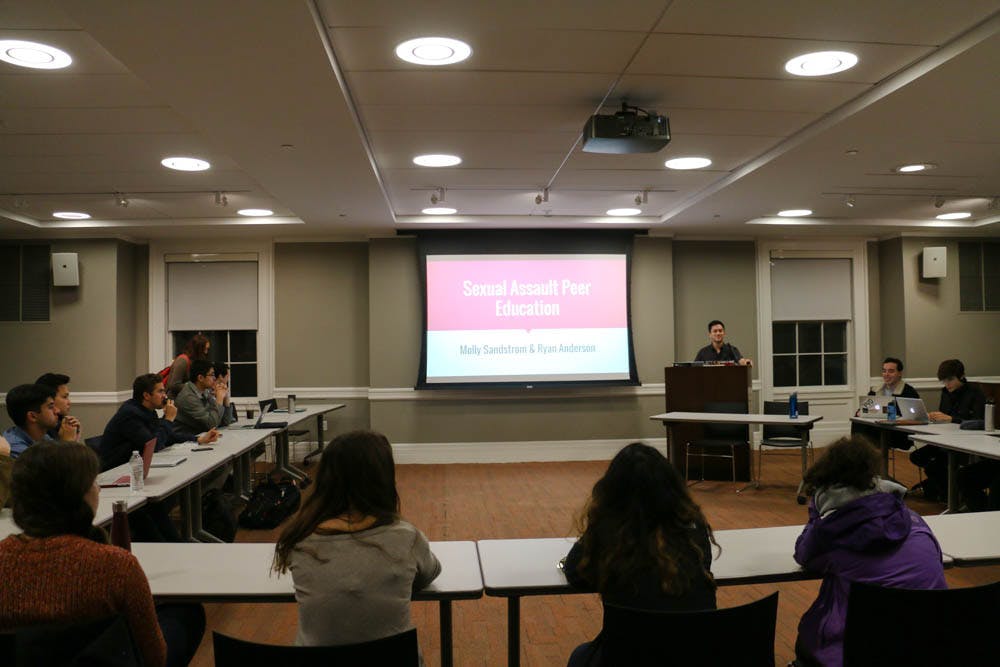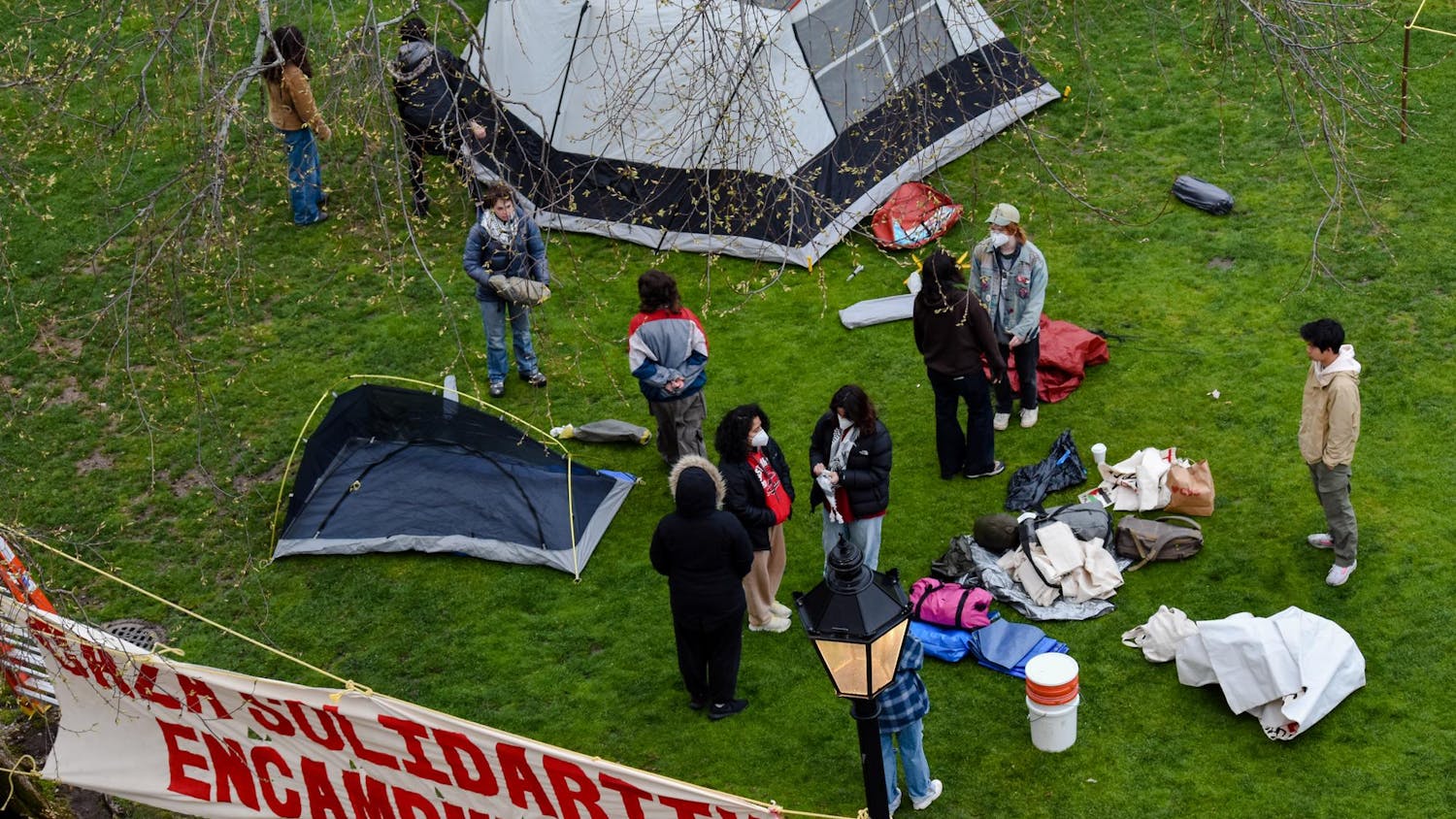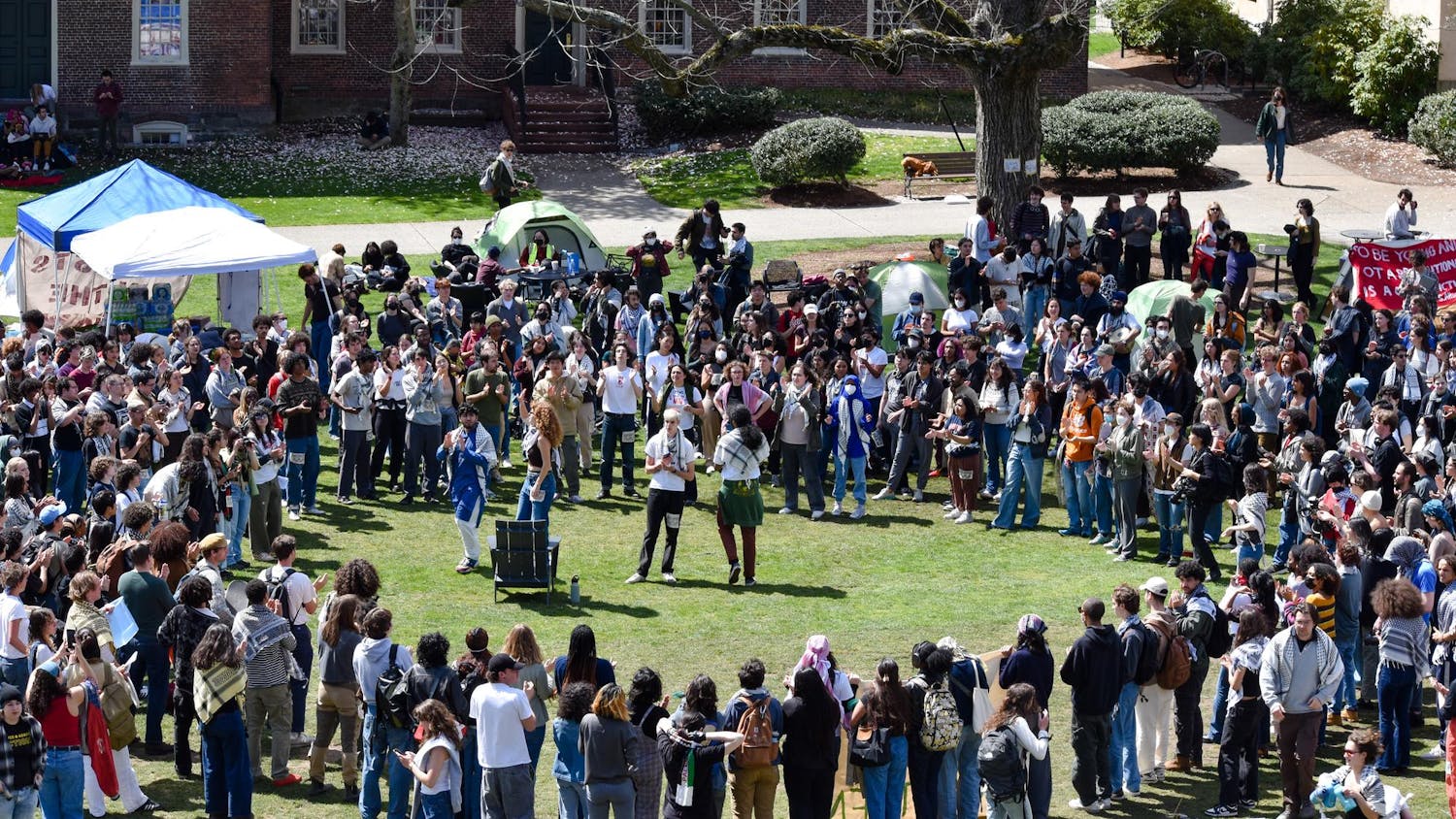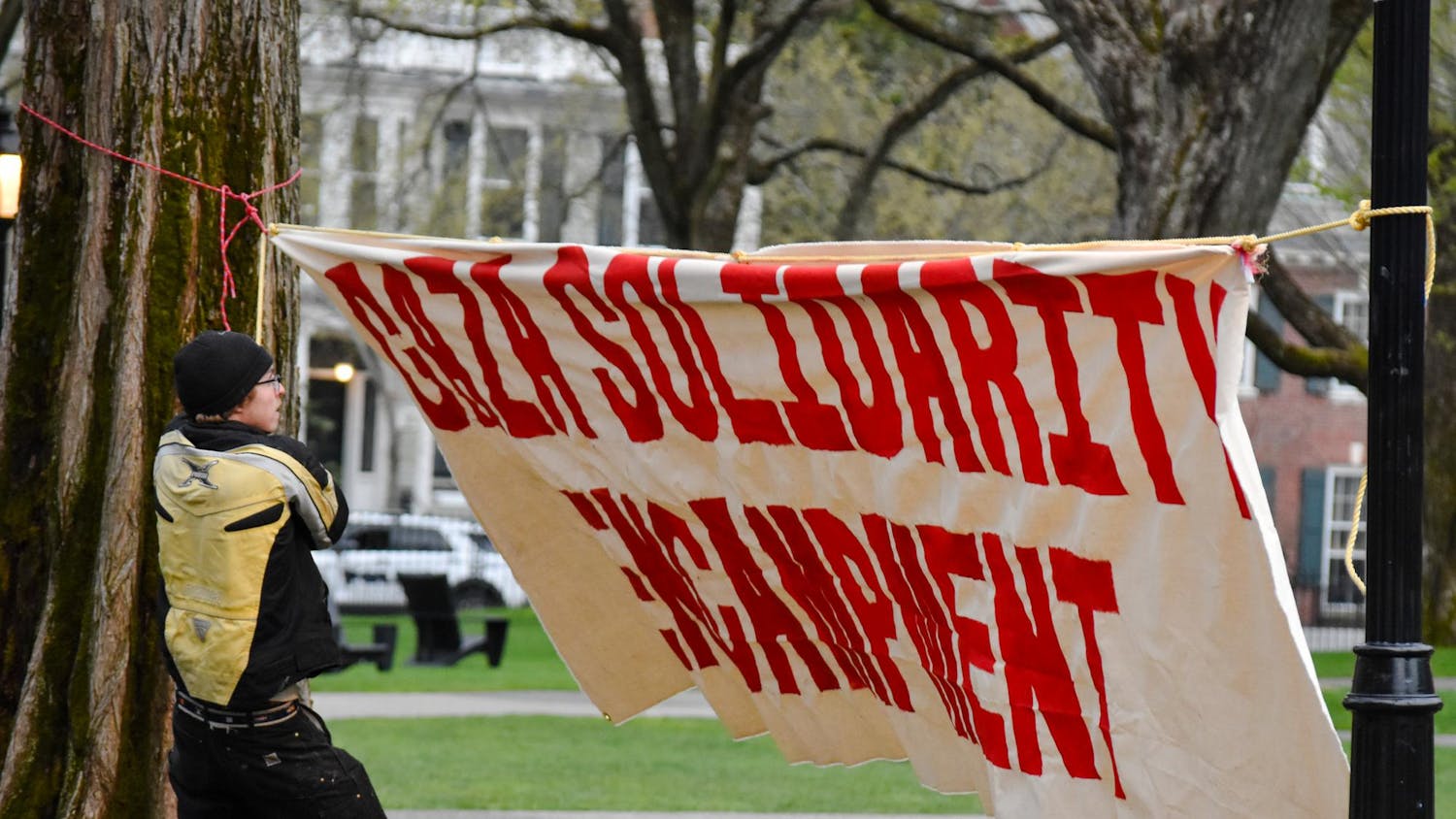Molly Sandstrom ’17 and Ryan Anderson ’18, lead peer educators for the Sexual Assault Peer Education program, outlined their organization’s new training curriculum at the Undergraduate Council of Students meeting Wednesday.
Beginning this academic year, SAPE stopped using the University of New Hampshire’s 90-minute-long Bringing in the Bystander model in its presentations to campus communities and began following a two-hour-long curriculum created this summer, according to Sandstrom, one of the new curriculum’s primary designers.
The new model divides SAPE presentations into five sections — norms and values, power, risk factors, response and moving forward and skills — and allows student groups to choose different areas in each of these sections that they want SAPE to focus on during their presentation, Anderson added.
SAPE developed its new model not only because it allows campus communities to receive customized presentations but also because of limitations in the Bringing in the Bystander program, Sandstrom said.
Bringing in the Bystander waits for violence to be present and witnessed, so it “doesn’t actually address the conditions in which that violence occurs,” she said. Other concerns with the program included its focus on the actions of males and its lack of information about how to address the behavioral problems of aggressors, Sandstrom added.
“We wanted to find something that was Brown-specific,” Sandstrom said. “And we wanted to give people a better understanding of rape culture as it exists at Brown and how to dismantle that through their community action and values and accountability plans.”
SAPE, which operates within the Health Promotions Office, has roughly 25 student members, including four lead peer educators, one of whom must staff every student group presentation, Sandstrom said. Since the Greek and Program House Council began requiring SAPE training for all new and returning members annually — a development that occurred several years ago — the demands made on the organization have increased, she added.
This spring, SAPE conducted 16 presentations for different student groups, and this academic year it plans to present to all Greek and program houses, frisbee, a cappella, Brown Band, Feminists at Brown and the debate team, Sandstrom said. “We’re a small group trying to get a lot accomplished,” she added.
Recruiting new SAPE members is difficult because students must attend a two-day-long training session to become SAPE educators, Anderson said. “We’re going to need to increase that outreach and make that seem more appealing,” she added.
SAPE also hopes to increase its number of liaisons, or student group members who receive SAPE training and then act as SAPE representatives in their campus communities, Anderson said.
“It gives that buy-in from the community,” Sandstrom added. “We used to get resistance from groups wondering why they had to receive this training.”
Because presentations are long, require extensive preparation and focus on a topic that can be exhausting to think and speak about, the current SAPE members cannot be expected to train the over 1,000 students that the organization expects to address this year, Sandstrom said. “We’re trying to expand our involvement so that we don’t burn out these peers, who are becoming a crucial part of our campus,” she added.
SAPE also wants to increase its funding so that current volunteers can be paid for their work, Anderson said. “We’re going to try to collect data about what people have learned during their SAPE presentations,” she added. SAPE can then “take that data and prove to the University that what we’re doing is actually fundable.”
At the meeting, students were also elected to fill two open seats on the Undergraduate Finance Board. Maxine Offiaeli ’18 and Rachel Carucci ’19 beat out three other contenders to secure the positions.
Carucci said she sought the seat because she is interested in pursuing a career in banking, a field that remains very “white male dominated.” Her role as assistant treasurer of Kappa Delta and her past work as the executive chair of a student-led philanthropic organization in high school prepared her for the UFB position, she added.
Offiaeli, who plans to go into investment banking, cited her experience as coordinator of student-athlete tutoring on campus, which she said “speaks to how trustworthy and dependable I am.”
“I’m open-minded and capable of adapting to new working environments and learning things on the go,” Offiaeli said.





